|
Ebola's effects go far beyond the death toll - in Sierra Leone it has spread fear and left whole families ostracized.
Tommy Trenchard
Last updated: 03 Jul 2014 10:35
|
|
Kenema, Sierra Leone - The
current outbreak of the deadly Ebola virus in West Africa was recently
branded the worst on record, having killed over 400 in Guinea, Sierra
Leone, and Liberia. But the effect of the disease goes far beyond the
death toll. In Sierra Leone it has spread fear and division, destroyed
livelihoods and left whole families ostracised.
Last Friday, Hawa Daboh lost her stepfather to the disease. He had been a working in the laboratory of the local hospital in Kenema. The rest of the family was tested and shown to be Ebola negative. But medical staff refused to give them proof of their negative status. Without it, they have been ostracised by the community. Life is tough for the children, who have been asked to leave school and are unable to visit their friends. The family says anyone who tries to visit neighbouring compounds is kicked out. The women in the family used to garner some income trading at the market. But now that they carry the stigma of Ebola, nobody will buy from them. Health workers like Hawa's stepfather are particularly at risk. Seven workers at the Kenema government hospital have already died from the disease. When Al Jazeera visited on Monday, workers from the Ebola ward were on strike, demanding better financial compensation for the risks they take. Staff here face discrimination from both sides. They are treated with fear by many, because of their association with the disease. Many others, however, still do not believe Ebola exists, often citing theories that it is part of a plot to raise money or even steal body parts. From these people, they have received open hostility. The government is trying hard to change perceptions about Ebola. Too many are avoiding treatment, fearing the rumours, and dozens of patients have escaped from hospitals and clinics. The UN is spreading the message that the disease is not a death sentence. Early diagnosis and treatment offer the best chance of survival. Without it, says survivor Adikali Kamara, he would almost certainly be dead. |
|
View As Slideshow >>
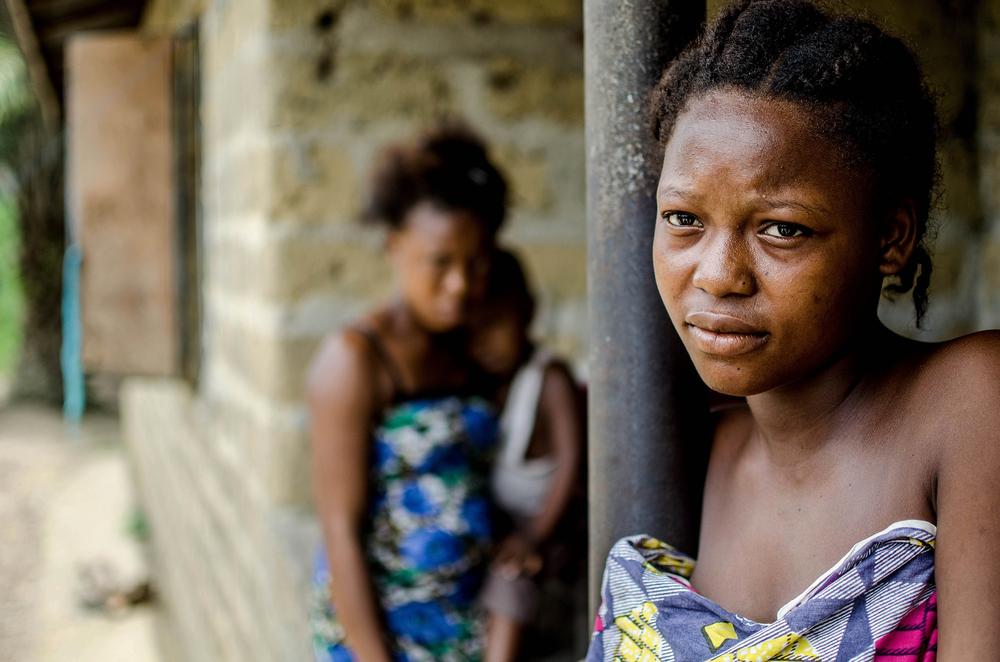
/Tommy Trenchard/Al Jazeera
Hawa Daboh, who lives with her large family in a suburb of Kenema, lost her stepfather to Ebola.

/Tommy Trenchard/Al Jazeera
The one death has impacted the entire family, leaving them stigmatised and alone.
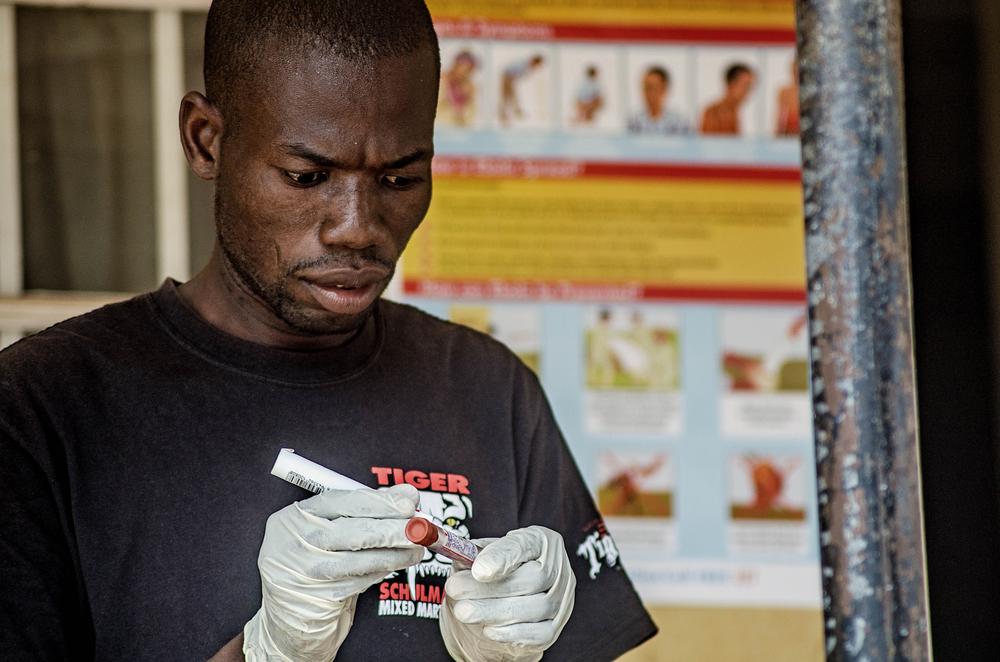
/Tommy Trenchard/Al Jazeera
The entire family was tested for the disease, but the results were negative.
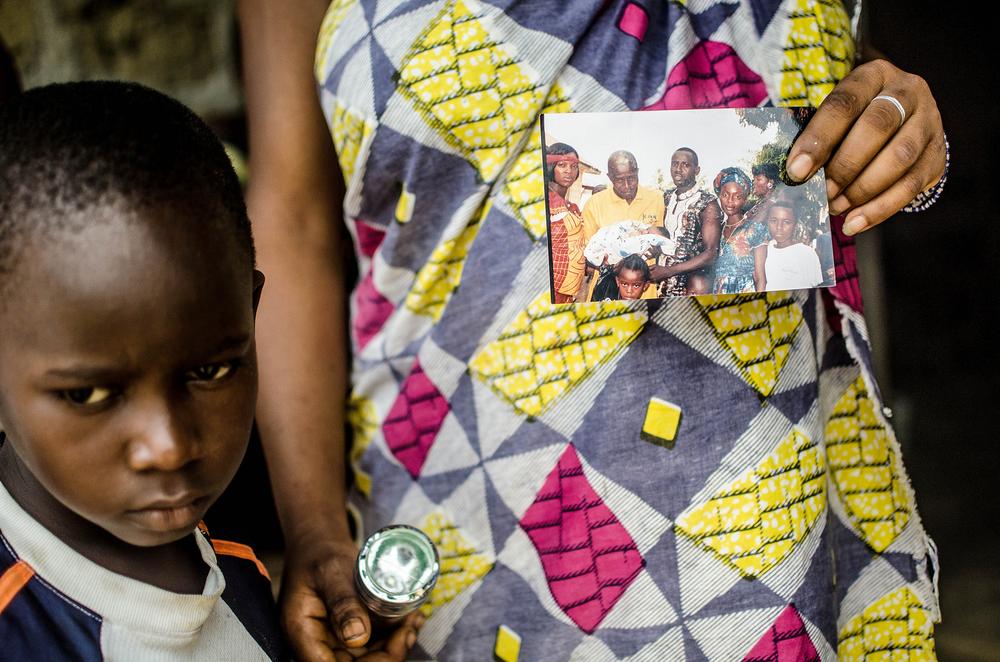
/Tommy Trenchard/Al Jazeera
Despite this, the children were ordered to leave school, while nobody will buy the women's products at the market.

/Tommy Trenchard/Al Jazeera
The disease spreads easily - a neighbouring household has seen seven people infected.
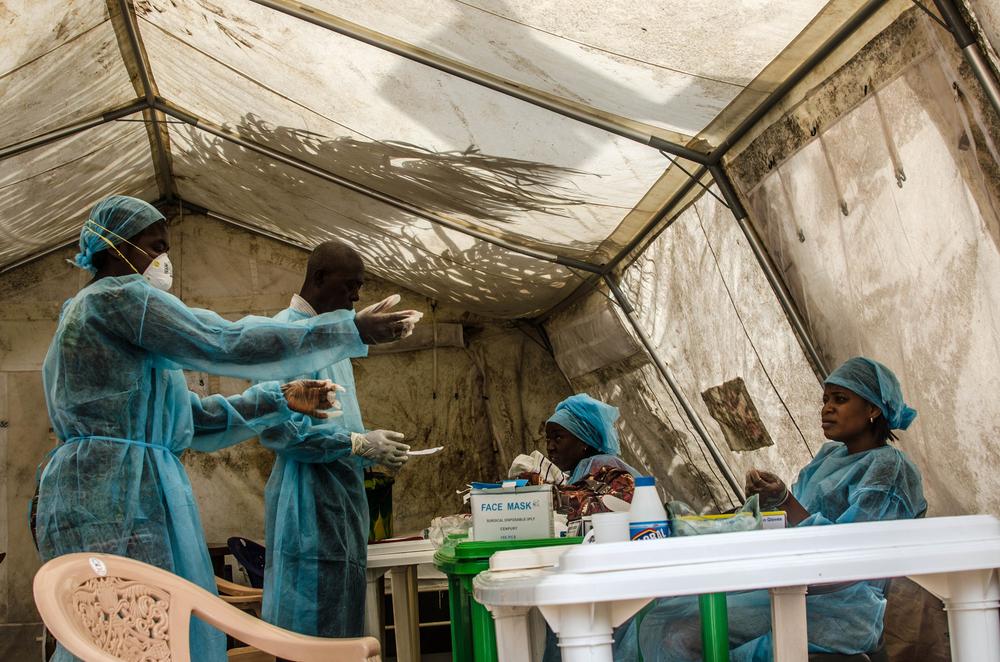
/Tommy Trenchard/Al Jazeera
Health workers, who regularly are in close contact with the disease, have been hit particularly hard.
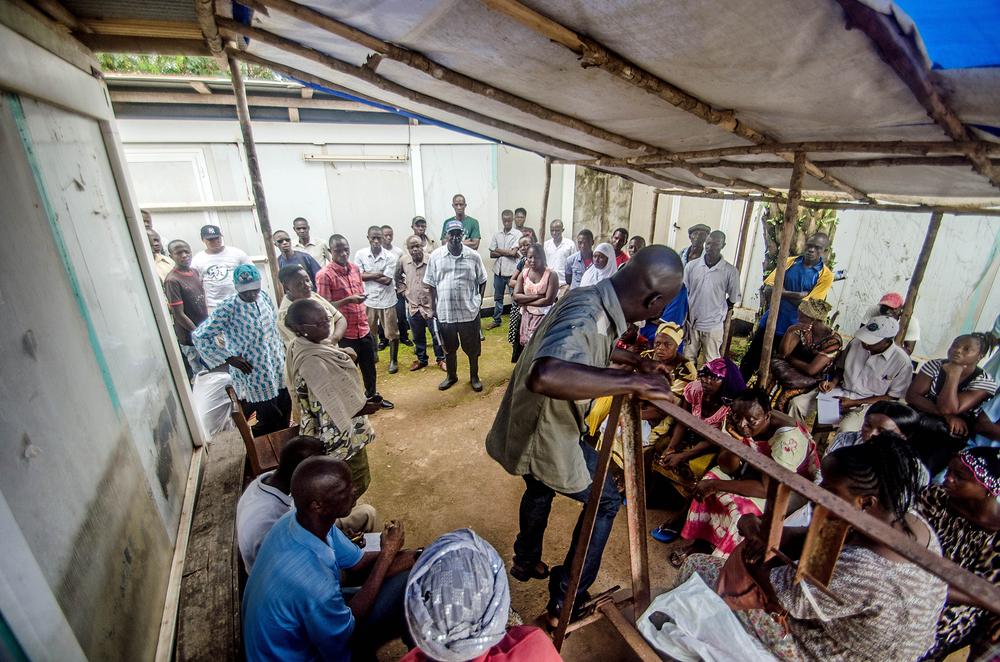
/Tommy Trenchard/Al Jazeera
When Al Jazeera visited the hospital in Kenema, the workers from the Ebola ward were on strike over pay and bonuses.
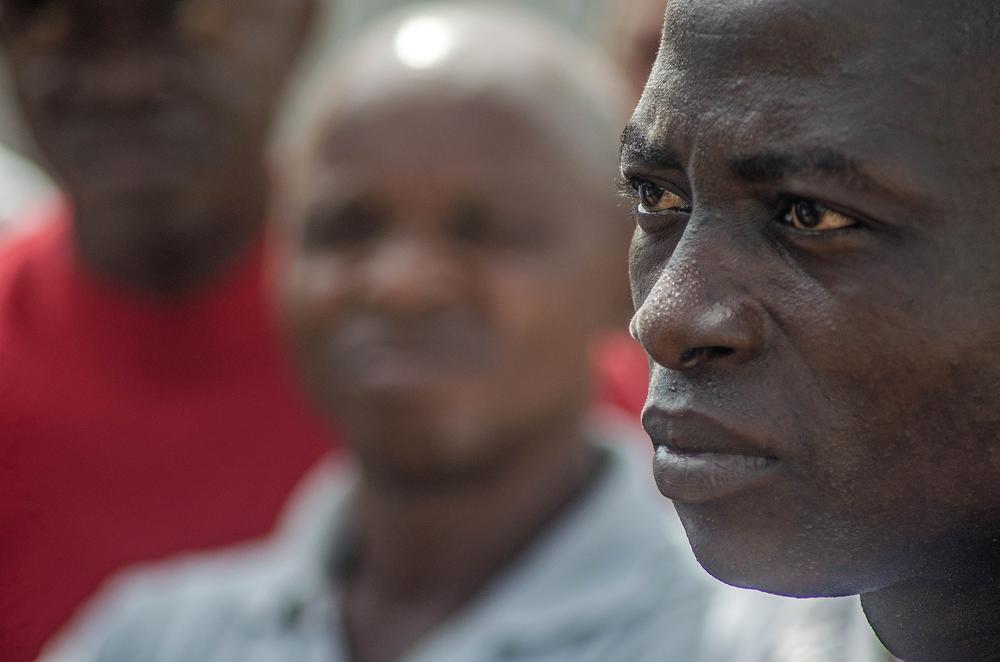
/Tommy Trenchard/Al Jazeera
They health workers say the 100,000 leones ($23) they receive as a bonus is not sufficient compensation for the risks they face.

/Tommy Trenchard/Al Jazeera
Despite taking precautions, seven health workers at the Kenema hospital have already died from the disease.

/Tommy Trenchard/Al Jazeera
Health
workers, too, face the stigma of being associated with the disease.
This woman said she had been kicked out by her husband as a result of
her work.
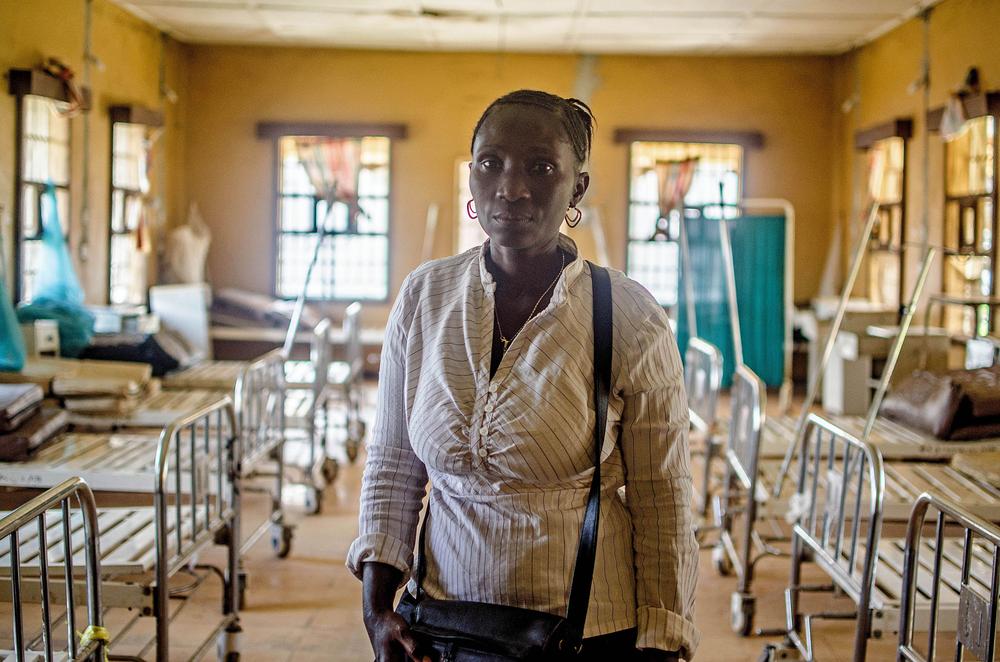
/Tommy Trenchard/Al Jazeera
Nurse Sheku stands by the empty ward for men. All non-Ebola patients fled three days ago.

/Tommy Trenchard/Al Jazeera
Many
people still do not believe the disease is real. Rumours abound that it
is a cover for a cult that steals body parts. "They think we kill
people," says Rachael Musa (R).
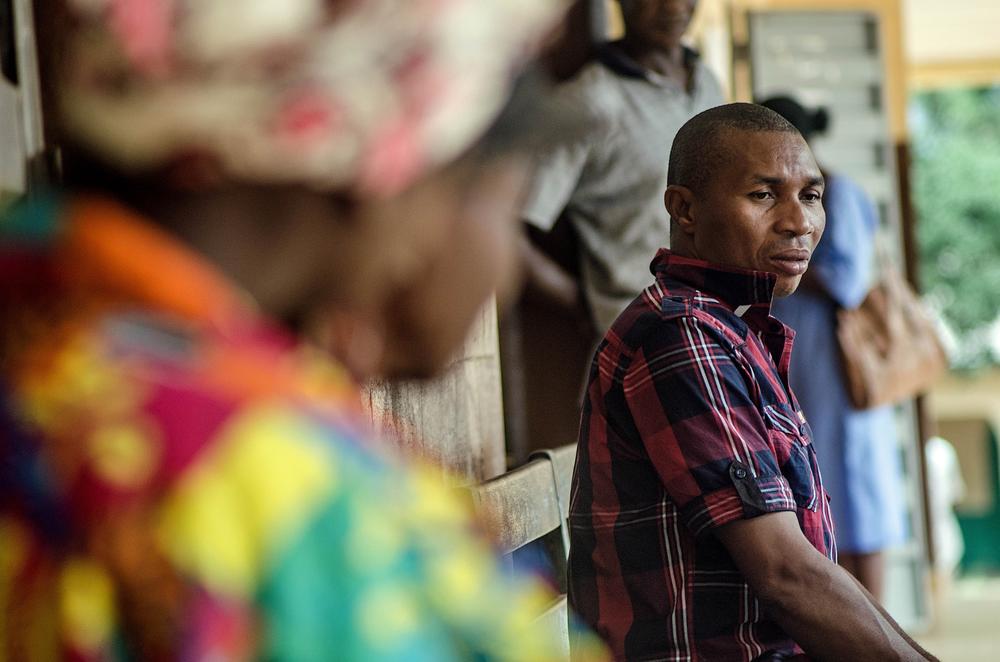
/Tommy Trenchard/Al Jazeera
Everyone
is trying to spread the same message: Ebola is real but it is not
necessarily a death sentence. Adikali Kamara believed the disease was
real and got tested early. He survived, and was discharged a week later.
http://www.aljazeera.com/indepth/inpictures/2014/07/pictures-deadly-ebola-virus-2014729177174711.html |
The Ebola virus causes Ebola virus disease (EVD) in humans, with a fatality rate of up to 90%. The symptoms of Ebola virus disease are severe and can include high fever, muscle pain and weakness, headache and sore throat, followed by vomiting, diarrhoea and internal and external bleeding. There is no known vaccine or cure for Ebola. The virus can be transmitted to humans from wild animals or between humans through bodily fluids, including blood, faeces and sweat. Transmission can also occur through direct contact with the body of a deceased Ebola patient.
Where possible, Australians should avoid travel to areas affected by Ebola virus. Closely monitor the advice provided by local health authorities and the WHO. Australians in West Africa are advised to maintain strict standards of hygiene and avoid direct contact with patients with Ebola or unknown illnesses. Avoid contact with any objects that could have been contaminated with bodily fluids. Travellers should avoid contact with wild animals and should not eat or handle raw or undercooked animal products, such as blood and meat.
Know the symptoms of Ebola virus disease and see a healthcare provider if they develop before or after travel. Be sure to tell your healthcare provider that you have travelled to a region where Ebola was present.
Australians are also advised that borders in the region may be closed at short notice to contain the outbreak. Travellers should seek local advice about border closures before travelling in the region.
For more information about the Ebola virus, see the WHO Ebola factsheet. For information about the current outbreak in West Africa, see the WHO disease outbreak news page. http://smartraveller.gov.au/zw-cgi/view/TravelBulletins/Ebola












